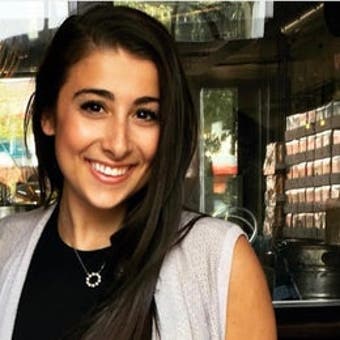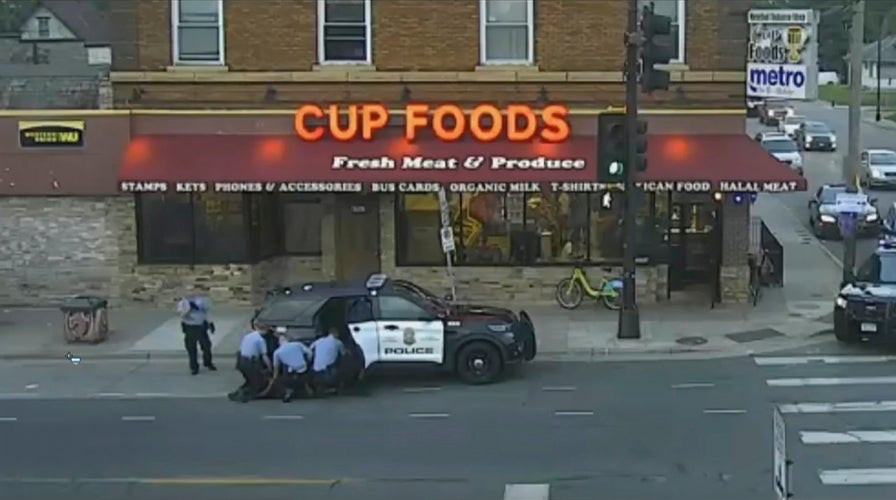Fox News Flash top headlines for January 27
Fox News Flash top headlines are here. Check out what's clicking on Foxnews.com.
The three former Minneapolis police officers who are on trial for allegedly violating George Floyd’s civil rights were trained to use the least amount force necessary, and had a duty to intervene against inappropriate force, according to Thursday testimony from the commander of the training division at the time of Floyd’s killing.
Inspector Katie Blackwell said officers are required to try to de-escalate a situation and, if force is used, to stop once the person is no longer resisting, then render any necessary medical aid they're trained to provide. While she didn't mention the officers specifically, she went through department policy and the training required of all officers.
Federal prosecutors say former Officers J. Alexander Kueng, Thomas Lane and Tou Thao failed to act to save Floyd's life on May 25, 2020, as fellow Officer Derek Chauvin knelt on the Black man's neck for 9-1/2 minutes while Floyd was handcuffed, facedown and gasping for air. Kueng knelt on Floyd’s back, Lane held his legs and Thao kept bystanders back, according to prosecutors.
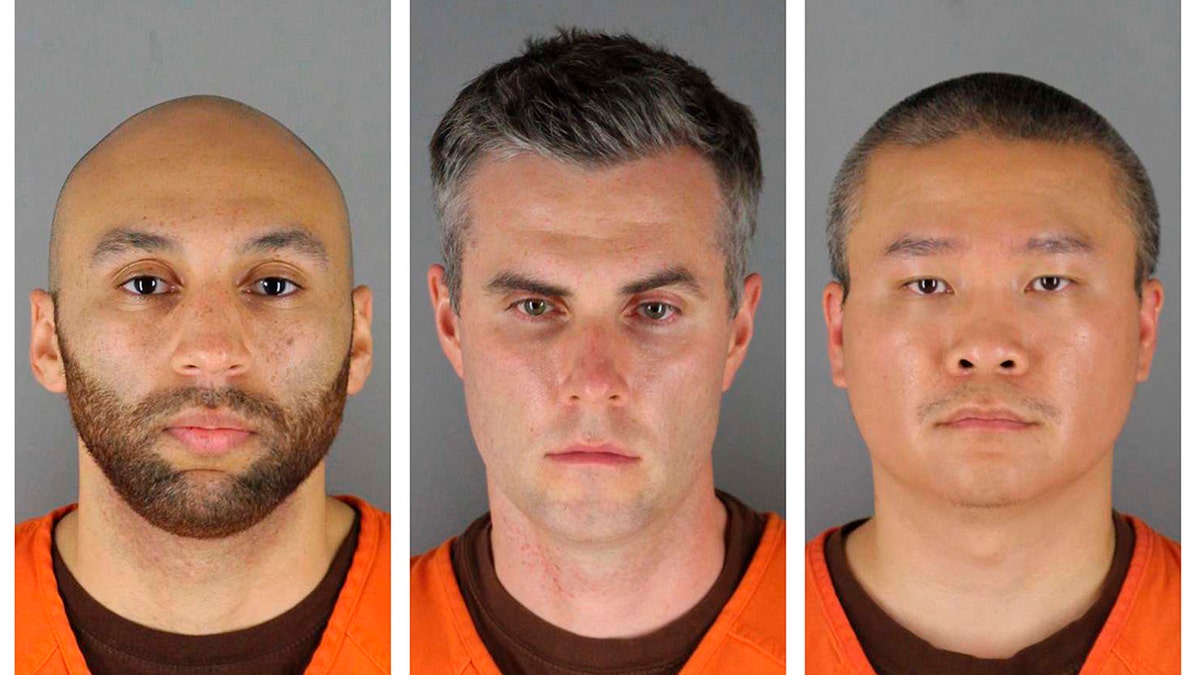
Photos provided by the Hennepin County Sheriff's Office in Minnesota on June 3, 2020, show, from left, former Minneapolis police officers J. Alexander Kueng, Thomas Lane and Tou Thao. (Hennepin County Sheriff's Office via AP)
Blackwell testified that it is critical to move someone from a prone position onto their side, otherwise "the concern is that they would die in custody." Body camera video shows that Lane asked if they should roll Floyd onto his side but was rebuffed.
GEORGE FLOYD POLICE TRIAL: MINNEAPOLIS PARAMEDIC TESTIFIES HE WASN'T TOLD FLOYD WASN'T BREATHING
Kueng, who is Black; Lane, who is White; and Thao, who is Hmong American, all are charged with willfully depriving Floyd of his constitutional rights while acting under color of law. One count against all three officers says they saw Floyd needed medical care and failed to help. A count against Thao and Kueng says they did not intervene to stop Chauvin. Both counts allege the officers’ actions resulted in Floyd’s death.
Whether the officers deprived Floyd of medical aid is a key element to the charges. On Wednesday, Assistant U.S. Attorney Manda Sertich sought to show jurors that responding paramedics were not given important information, and that Floyd should have been given medical attention immediately.
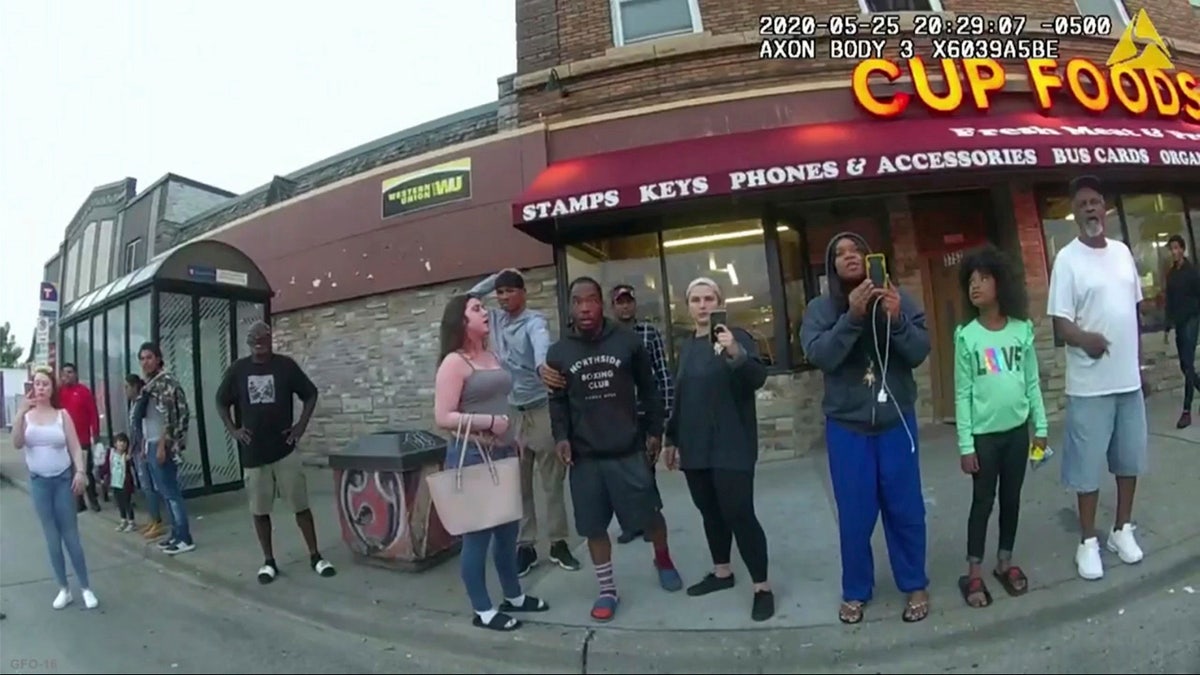
This image from a police body camera shows people gathering as former Minneapolis police officer Derek Chauvin was recorded pressing his knee on George Floyd's neck for several minutes as onlookers yelled at Chauvin to get off and Floyd saying that he couldn't breathe on May 25, 2020 in Minneapolis, Minnesota. (Minneapolis Police Department via AP)
Paramedic Derek Smith testified that he wasn’t told Floyd wasn’t breathing and had no pulse when officers upgraded the urgency of an ambulance call. Smith agreed with Sertich that CPR should have been started as soon as possible — something the officers were trained to do.
Paramedics put Floyd in the ambulance and took him to another location to be treated.
Robert Paule, Thao’s attorney, got Smith to say that he would not have done that if it weren’t for the bystanders, who were yelling at officers to help Floyd.
Minneapolis firefighter and trained emergency medical technician Genevieve Hansen, who was off-duty when she came upon the scene that day, testified that officers ignored her requests to render medical aid to Floyd.
And Minneapolis Fire Department Capt. Jeremy Norton — who arrived after paramedics had moved Floyd — testified that his department would have started CPR on the scene, and that providing care as early as possible would have been the best chance to save Floyd. A 911 dispatcher testified earlier in the week that she would have sent the Fire Department instead of an ambulance if the officers had told her Floyd wasn’t breathing because they could have gotten there faster.
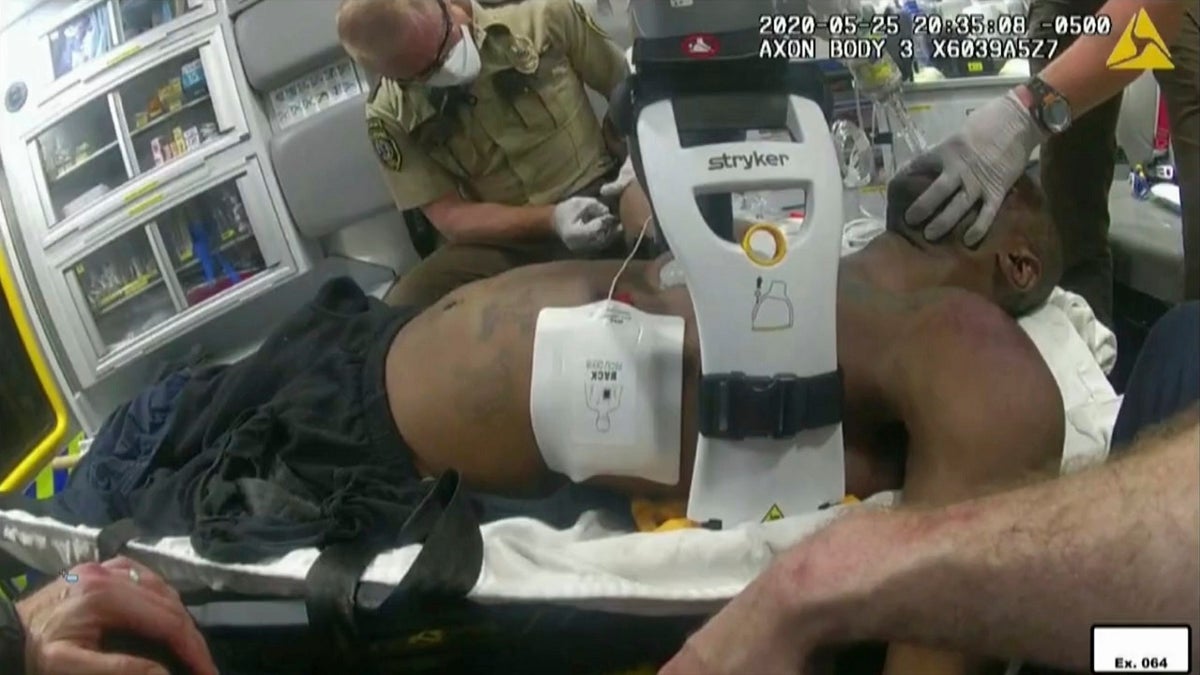
This image from police body camera video shows emergency personal tending to George Floyd after he had been loaded into an ambulance on May 25, 2020, in Minneapolis. (Minneapolis Police Department via AP, File)
During opening statements, Kueng’s attorney, Tom Plunkett, said that Chauvin called "all of the shots" as the senior officer at the scene.
CLICK HERE TO GET THE FOX NEWS APP
Chauvin was convicted of murder and manslaughter in state court last year. He also pleaded guilty in December to a federal civil rights charge.
Lane, Kueng and Thao also face a separate state trial in June on charges they aided and abetted murder and manslaughter.
Fox New's Ashley Soriano and The Associated Press contributed to this report.




















